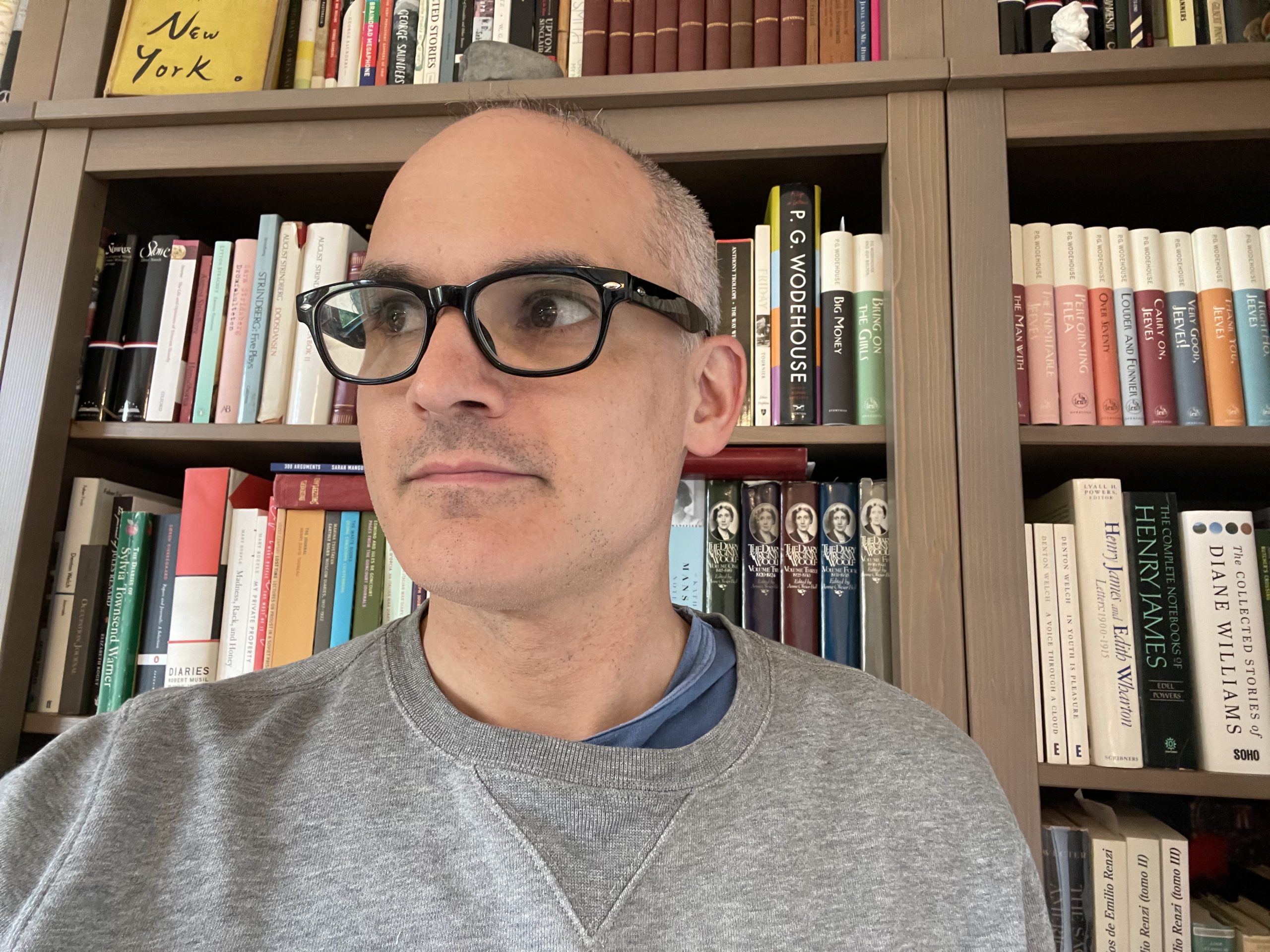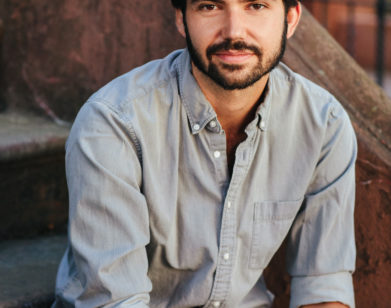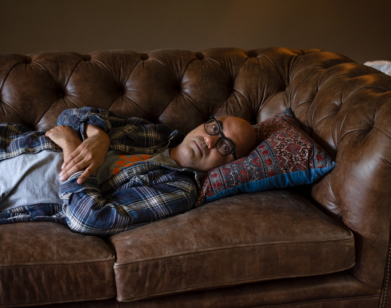culture!
Hernan Diaz Deconstructs the Myth of the Self-Made Man

Photo courtesy of Hernan Diaz.
Class may be a foundational component of any story, but for Hernan Diaz, it’s a fixation. Diaz, the Buenos Aires-born, Stockholm-raised author whose debut novel In the Distance—a story of immigrant triumph and family ties—made him a Pulitzer Prize finalist, is the rare author who would take on not just the issue of class, but a subject as abstract and systemic as the very way capital is accumulated, without sacrificing any drama or intrigue. The result of his efforts is Trust, the 49-year-old author’s latest work of historical fiction.
Trust, set in 1920s New York, is really a multi-narrative collection of four mini novels about an enigmatic, fantastically wealthy couple—Benjamin Rask, a stockbroker, and his wife Helen—that tackles subjects of class, empire, intimacy, and greed head on. Depending on who is telling the story, Benjamin is either a taciturn genius or a blue-blooded sportsman, and Helen is either a self-made mathematician or a mad housewife. In fact, Benjamin and Helen may not be their names at all. Here, Diaz talks to Interview about Trust, the invisible labor that the American Dream is built on, and his 20-year-old fountain pen.
———
SHANTI ESCALANTE: Your first novel In the Distance was a Western, and Trust is set in 1920s New York. What draws you to these classically American periods?
HERNAN DIAZ: As a voluntary American, I’m very interested in this nation’s ideas about itself. For Trust, I was interested in the role that wealth plays in the American national identity, this myth of the self-made man who pulls himself up by his bootstraps through hard labor and ingenuity. Wealth is obviously at the center of American culture, but it also feels taboo to address the actual appropriation of human labor that leads to capital accumulation.
ESCALANTE: It’s very difficult to translate systemic issues into human stories. How did you approach this?
DIAZ: These big narratives are, by nature, impersonal. I was interested in the people who have benefited from great fortunes—I don’t say “those who have amassed great fortunes,” because that’s exactly what the book is questioning. Fortunes are represented by a single person or family, but are were created by many people whose humanity has been erased. That certainly includes women—the literature of wealth is bereft of women—and it’s clear to me that these are people who have been gagged. At the core of this project is an attempt to listen to the humanity that wealth has tried to erase.
ESCALANTE: Trust has a very unique structure to it, why did you decide to write it in four parts?
DIAZ: Well, it’s connected to what I just said—who has a voice? Which voices can you trust? Capital contains multitudes, right? So for the book itself to be truthful to its subject, it couldn’t be narrated from one point of view. We invest so much in these myths, so I wanted to reveal that these stories are made up of many people, and that you might not always know whose voice you’re hearing.
ESCALANTE: Were there any parts of the book that you particularly enjoyed writing?
DIAZ: Yes, writing Ida. Ida is like my hero—she’s fearless, effective, crafty, and very bold. I made her all the things that I wish I were. She’s also a very different writer from me, so I had to learn to write like her.
ESCALANTE: For your first book, you worked with a very small press. How was it different working with Riverhead?
DIAZ: I worried about leaving Coffeehouse, a small but exquisite press. I was afraid I would have to compromise once I went to Riverhead. Writing is not a collaborative process for me at all, but the freedom I had at Riverhead was unparalleled, and I got to do exactly what I wanted to do. My editor was wonderful, and she definitely made the book better.
ESCALANTE: How do you write?
DIAZ: I write everything in large format notebooks now, and I write everything with the same pen, which is Montblanc Meisterstück. The classic black fountain pen. I was given it as a gift 20 years ago.
ESCALANTE: Wow, I would’ve lost it by now.
DIAZ: If you only knew how much RAM in my head is devoted to not losing this pen. Every day of my life, I’m like, “Where’s the pen?”
ESCALANTE: What do your days look like when you’re writing?
DIAZ: I start the day in a quiet room, typing up the stuff that I wrote longhand the day before. That’s also an editorial pass. That gets me in the right headspace, and reminds me where I am with the book and what its issues are. Then I put the computer aside and go back to the pen until it feels like no more original writing can be done. Then I go back to my digital draft for a deeper edit.
ESCALANTE: So you don’t go through multiple drafts?
DIAZ: That’s just not the way I do it. I edit very closely while I’m writing, so by the time I’m done with the last sentence of the book, the book is really done.
ESCALANTE: Do you have any pet peeves about the publishing industry today?
DIAZ: Pet peeves? I have a whole fucking zoo. But I’m not going to share that with you under any circumstances!



